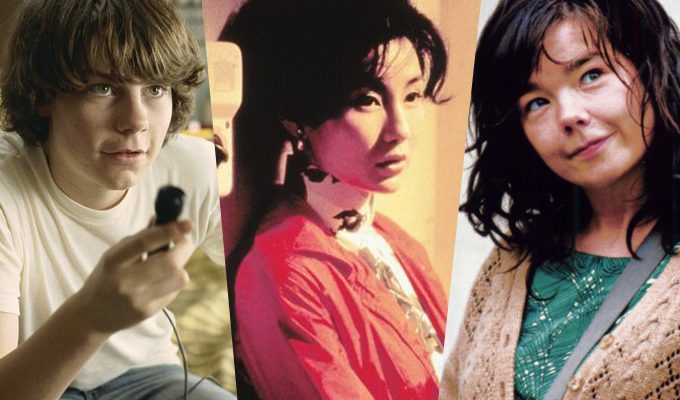 3. “Ratcatcher”
3. “Ratcatcher”
Lynne Ramsay‘s expressive and well-observed debut about a latchkey lad living in the squalor of 1970s Scotland during a garbage strike is breathtaking; a beautiful and raw slice of cinema vacillating back and forth between the gray and decrepit landscapes of poverty and negligent parents and the celebratory escape of imagination and play. An accidental drowning kicks-off the story, but rather than becoming a whodunit mystery, the film simply follows the exploits of the guilt-ridden boy trying to make sense of his world and cope in his bleak surroundings. It’s haunting and dilapidated, while still hinting towards hope. Spike Jonze said “Ratcatcher” largely influenced the tender yet honest childlike tones and gorgeous, roughhewn visuals of “Where The Wild Things Are,” and it certainly shows.
 2. “Traffic”
2. “Traffic”
Featuring 135 speaking parts, 110 locations and shot in 8 different cities, Steven Soderbergh‘s drug trade epic could’ve been a mess. However, by wisely deciding to color code the intersecting storylines of the film’s exploration of the proliferation of drugs from manufacture to distribution to use, Soderbergh gave Stephen Gaghan‘s sprawling script a final structural layer that brought viewers viscerally from the grimy drug warrens of Mexico to the pristine political hallways of Washington. Boasting an ensemble cast that mixed heavyweights with promising newcomers (some of whom would later gain A-list status), Soderbergh’s film is a sobering account of the failures of the “War On Drugs” on all levels.
 1. “In the Mood for Love”
1. “In the Mood for Love”
Wong Kar-Wai‘s film about two neighbors who form a bond when they suspect their spouses of infidelity, is a moving masterpiece about the boundaries of passion and the longing of desire. The sumptuous cinematography by Christopher Doyle is only aided by an impeccable attention to detail in the costume and set design departments. Nor would it be as moving if weren’t for one of the best soundtracks of the decade, featuring a sensuous, well-chosen collection of jazz, string motifs and Chinese pop. But none of it would be worth talking about were it not for the impeccable performances by Tony Leung and Maggie Cheung who say more here with silence and furtive glances than most actors do with dialogue over their entire careers.
Honorable Mentions:
2000 had several great films that we’re a bit bummed to have to cut off this list, but we gave ourselves a rule of 10 films only. Suffice to say there was lots of bickering, fighting and arguing, but such is life with lists like these. The biggest controversies for 2000 amongst Team Playlist were Edward Yang‘s sprawling family drama, “Yi Yi” and Kenneth Lonergan‘s remarkable brother-sister drama, “You Can Count on Me” with excellent performances from Mark Ruffalo as a total fuck-up 30-something and his exasperated sister, Laura Linney. Other films that we admire, but didn’t quite make the cut included Alison Mclean‘s “Jesus’ Son” featuring awesome performances by Billy Crudup and Samatha Morton as drug-addict adult-lescents in the 1970s, Stephen Daldry‘s celebratory boyhood-meets-ballet drama, “Billy Elliot,” Lars Von Trier’s comedic docu-like dogme film “Idioterne” (“The Idiots,” made in 1998 but only released in the U.S. in 2000), Steven Soderbergh‘s economic and no-nonsense “Erin Brockovich,” Stephen Frears‘ manchild, record store-centered love story, “High Fidelity,” Terence Davies‘ “The House of Mirth” featuring an excellent Gillian Anderson turn, and perhaps Neil LaBute‘s best film, tellingly one he didn’t write, the dreamy and odd, “Nurse Betty.” Also, let’s not forget Jim Jarmusch‘s excellent “Ghost Dog: The Way of the Samurai” which has awesome performances by Forest Whitaker, Isaach De Bankolé and features a bold and excellent instrumental hip-hop score by the Wu-Tang’s RZA.
Yes, that’s a long-ass honorable mention list, but there were a lot of films to love that year. So, your favorite or best pictures of 2000?
– Katie Walsh, Kevin Jagernauth, Rodrigo Perez, Kimber Myers, Beau Delmore and Gabe Toro

